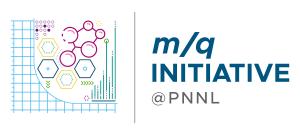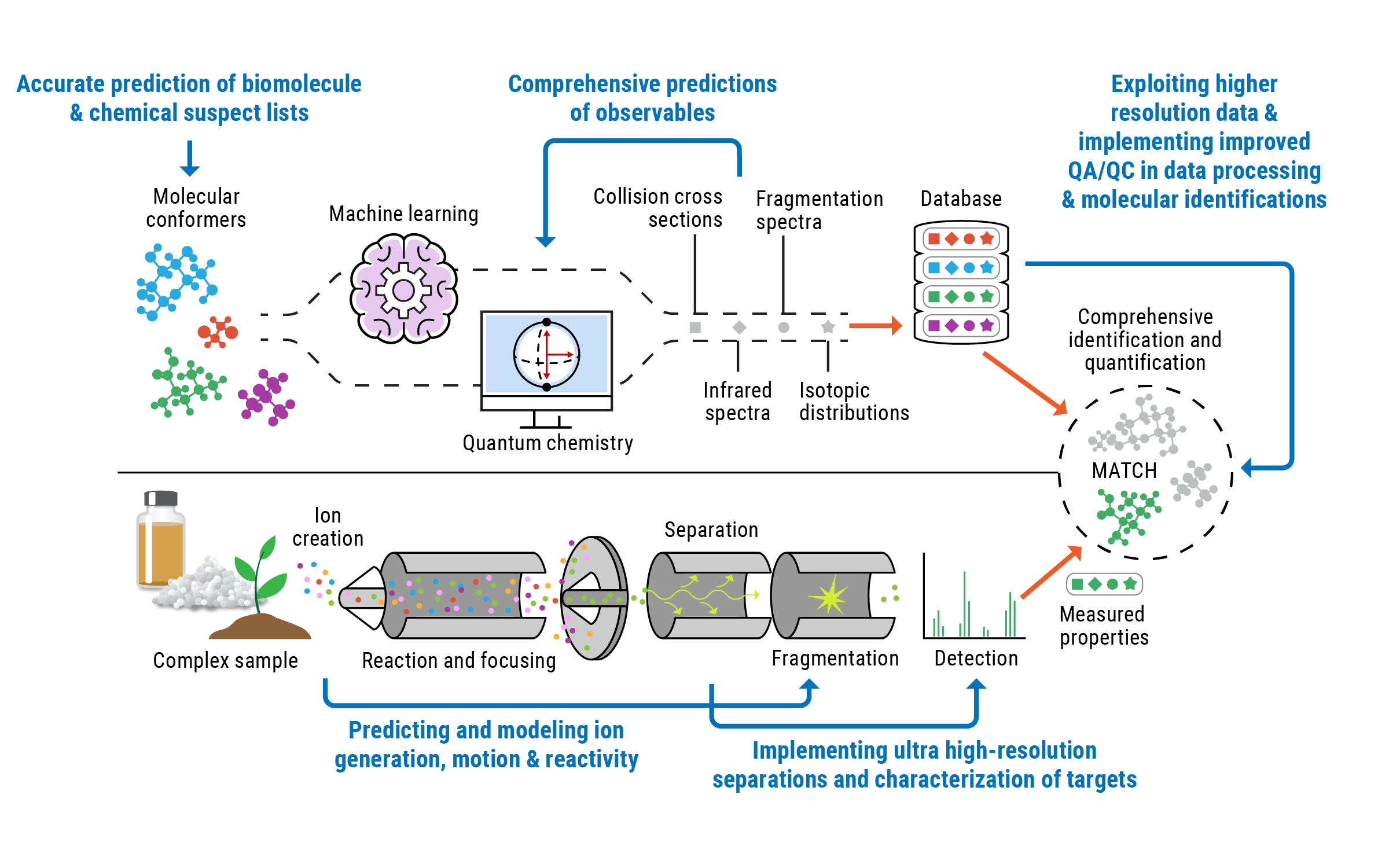
m/q Initiative
m/q Initiative
The m/q Initiative is revolutionizing the efficacy of mass spectrometry by offering a comprehensive, cohesive, and predictive grasp of the chemistry and physics governing all ions throughout a measurement. This understanding is then leveraged to forecast a quantitative multi-property response. m/q is poised to introduce groundbreaking modeling and analysis techniques that will facilitate molecule identification and quantification via mass spectrometry without the need for reference compounds. Additionally, it will enhance the capacity for measuring specific analytes.

Lab-Level Communications Priority Topics
Computing
